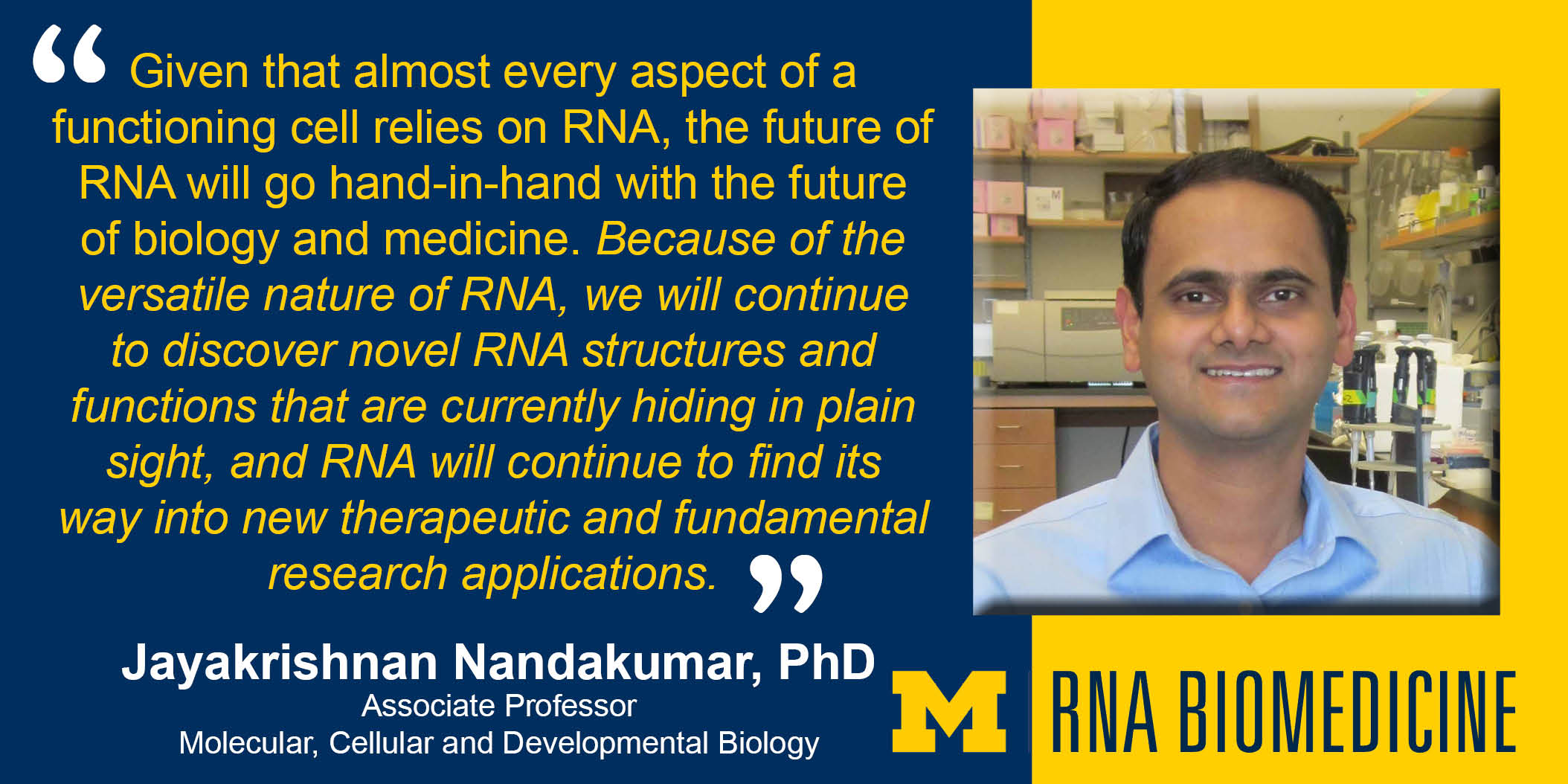RNA Faculty Spotlight – JK Nandakumar, Molecular, Cellular and Developmental Biology

Jayakrishnan Nandakumar, Ph.D.
Associate Professor
Departments of Molecular, Cellular and Developmental Biology
We are interested in the biogenesis, trafficking, recruitment to telomeres, and catalytic mechanism of the RNP enzyme telomerase. We are also investigating other noncoding RNAs that are involved in gene regulation.
Visit Lab Website
Follow on Twitter: @LabNandakumar
- What are your research interests? We are generally interested in how protein-nucleic acid complexes at human telomeres protect and maintain chromosome ends. We are specifically interested in the roles played by telomeres and telomerase (an RNP) in cancer cells, stem cells, and cells undergoing meiosis.
- Who/what brought you to science? When I was struggling with organic chemistry in high school, a chemistry tutor helped me turn the corner so much so that I decided to pursue an undergraduate degree in chemistry. My initial interest in organic chemistry matured to a love for protein-nucleic complexes, something that I continue to be passionate about in my short and long term research goals.
- What advice would you give to students who’d like to get more involved in research? Reading and learning more, whether that means taking challenging courses or trying out research in a lab. The more we learn, the more we want to learn (because we realize how little we know).
- Are there any opportunities for students to engage in your projects, currently or in the future? Our lab provides graduate and undergraduate students an excellent environment to pick up a large number of experimental skills, including protein biochemistry, nucleic acid enzymology, X-ray crystallography, and human cell biology. We are always looking forward to motivated students applying for a position/rotation in the lab.
- What skills would they need, and what could they expect to learn? The most important skill coming in is enthusiasm for discovering something new. The second most important skill is to follow up that enthusiasm with smart thinking and hard work. I already mentioned a few lab skills in the question above, but in addition, students joining the lab will develop team building skills, get opportunities to work on their mentoring skills (as newer people join the lab), and develop several other important skills including oral presentation skills and writing skills.
- What profession other than your own would you like to attempt? I always thought that I would make for a terrible medical doctor/surgeon, but who knows, maybe I was being too harsh on myself.
